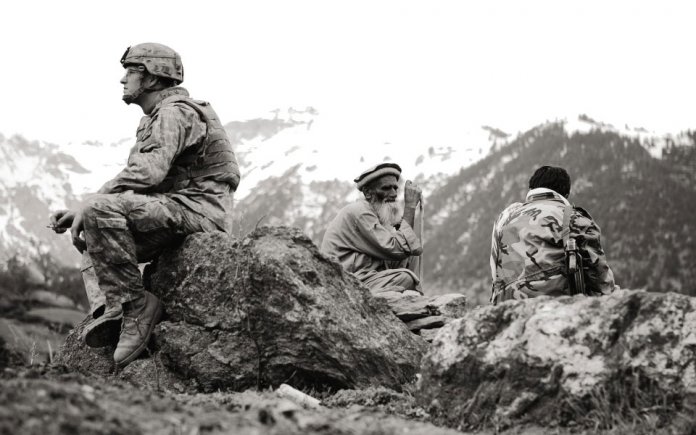History tends to glorify the wars of the past, and this leads to many legends about them. Such legends are funny at best, and completely inaccurate at worst.
Here are five myths about famous wars of the past.
5. World War II
One of the most frequently recurring myths about World War II is that the first of the reasons leading to its beginning was the discontent of the Germans with the severity of the Treaty of Versailles. He drove Germany into such a deep financial and social hole that it allowed Hitler and his Nazi party to take the reins.
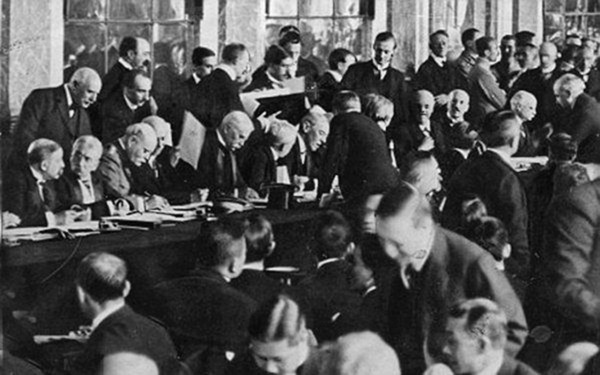 Hitler did use the economic crisis as an excuse to enlist the support of the people, promising them a better quality of life and a return to its former glory. But the Nazi party until 1932 did not gain enough votes to secure Hitler a high elected office. He managed to secure his place in power through a variety of backroom deals and tricks. The Nazis were skillful propagandists and used the Treaty of Versailles to achieve their goals, but the idea that it provided Hitler with a popular electoral victory is a myth.
Hitler did use the economic crisis as an excuse to enlist the support of the people, promising them a better quality of life and a return to its former glory. But the Nazi party until 1932 did not gain enough votes to secure Hitler a high elected office. He managed to secure his place in power through a variety of backroom deals and tricks. The Nazis were skillful propagandists and used the Treaty of Versailles to achieve their goals, but the idea that it provided Hitler with a popular electoral victory is a myth.
4. Vietnam War
The Tet offensive is often seen as the final step that proved that the US could not win the Vietnam War.
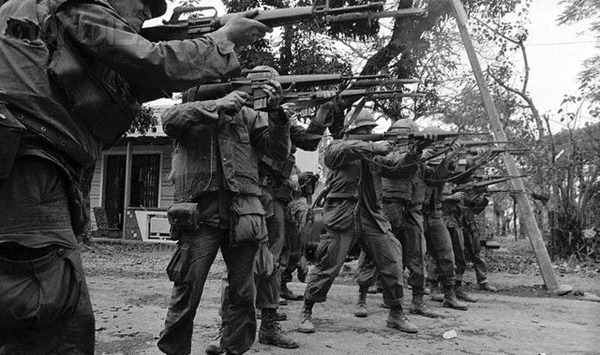 It is true that the Tet offensive was a turning point in the war and likely brought about its end, but it is also true that the United States was not yet militarily defeated completely. The offensive forced North Vietnamese troops to stretch out - an incredibly risky move. However, following news of the attack on news channels, the demoralized American public believed the Vietnam War was lost. The United States simply lost the will to continue.
It is true that the Tet offensive was a turning point in the war and likely brought about its end, but it is also true that the United States was not yet militarily defeated completely. The offensive forced North Vietnamese troops to stretch out - an incredibly risky move. However, following news of the attack on news channels, the demoralized American public believed the Vietnam War was lost. The United States simply lost the will to continue.
3. Pearl Harbor
The United States did indeed officially declare war on Japan after the bombing of Pearl Harbor. However, even before this event, they were already far from the position of a neutral state. The actions of the United States, in essence, led to the Pearl Harbor scenario.
 By order of US President Franklin Delano Roosevelt, Japanese assets were frozen, in view of the possible start of a military conflict. In 1941, the export of oil from the United States to Japan was stopped. Japan decided to launch a preemptive strike against the US Navy to defend its advance into the Dutch East Indies and Southeast Asia to seize European-owned sources of raw materials.
By order of US President Franklin Delano Roosevelt, Japanese assets were frozen, in view of the possible start of a military conflict. In 1941, the export of oil from the United States to Japan was stopped. Japan decided to launch a preemptive strike against the US Navy to defend its advance into the Dutch East Indies and Southeast Asia to seize European-owned sources of raw materials.
2. The myth of plaid kilts
The second place in the top 5 military legends is occupied by a myth that is firmly rooted in the mass consciousness, in particular, thanks to films such as "Braveheart".
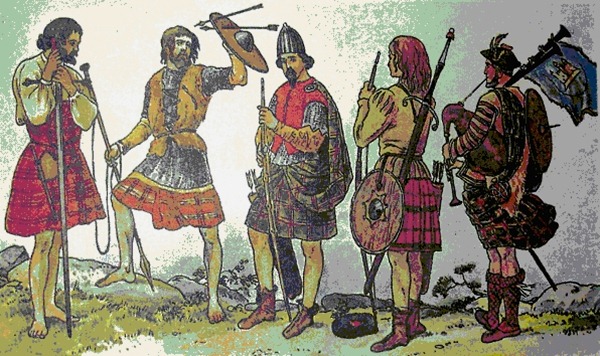 Historian Fergus Kennen of the Victoria and Albert Museum in London claims that medieval Scottish warriors wore tunics that vaguely resemble kilts, but are a completely different piece of clothing. These tunics were dyed bright yellow with saffron and sometimes horse urine. This style was known as "yellow military shirts". Over the shirts, wealthy Scots wore a long chain mail made of small iron rings, and the poorer soldiers limited themselves to a short jacket made of deer or cow skin. The jacket was dipped in resin or wax to make it waterproof.
Historian Fergus Kennen of the Victoria and Albert Museum in London claims that medieval Scottish warriors wore tunics that vaguely resemble kilts, but are a completely different piece of clothing. These tunics were dyed bright yellow with saffron and sometimes horse urine. This style was known as "yellow military shirts". Over the shirts, wealthy Scots wore a long chain mail made of small iron rings, and the poorer soldiers limited themselves to a short jacket made of deer or cow skin. The jacket was dipped in resin or wax to make it waterproof.
1. The bombing of Hiroshima and Nagasaki
The bombing of the Japanese cities of Hiroshima and Nagasaki, near the end of World War II, was the first time nuclear bombs were used in human history.
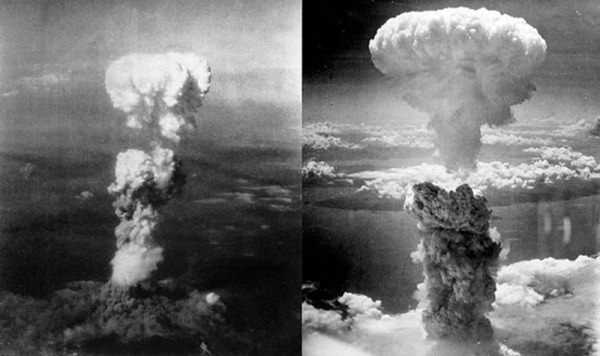 However, some of the bombings were even more destructive than the bombs dropped on Hiroshima and Nagasaki. The United States has twice dropped bombs on Tokyo from B-29 bombers. Approximately 100,000 people were killed in the first raid and over 125,000 in the second. For comparison: in Hiroshima, immediately after the explosion, from 90 to 166 thousand Japanese died, and in Nagasaki there were from 60 to 80 thousand victims. This does not mean that what happened in Hiroshima and Nagasaki is not shocking and monstrous, but this is not the first time a US Air Force bombing raid has caused such large-scale civilian casualties.
However, some of the bombings were even more destructive than the bombs dropped on Hiroshima and Nagasaki. The United States has twice dropped bombs on Tokyo from B-29 bombers. Approximately 100,000 people were killed in the first raid and over 125,000 in the second. For comparison: in Hiroshima, immediately after the explosion, from 90 to 166 thousand Japanese died, and in Nagasaki there were from 60 to 80 thousand victims. This does not mean that what happened in Hiroshima and Nagasaki is not shocking and monstrous, but this is not the first time a US Air Force bombing raid has caused such large-scale civilian casualties.

